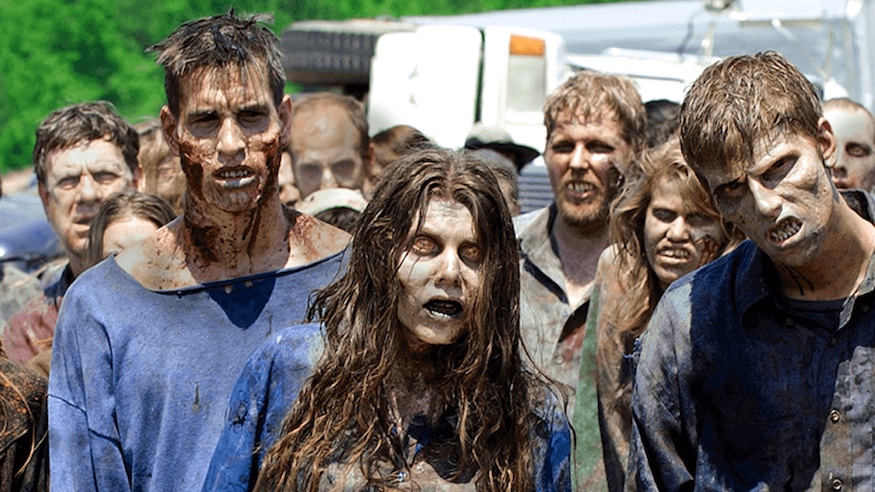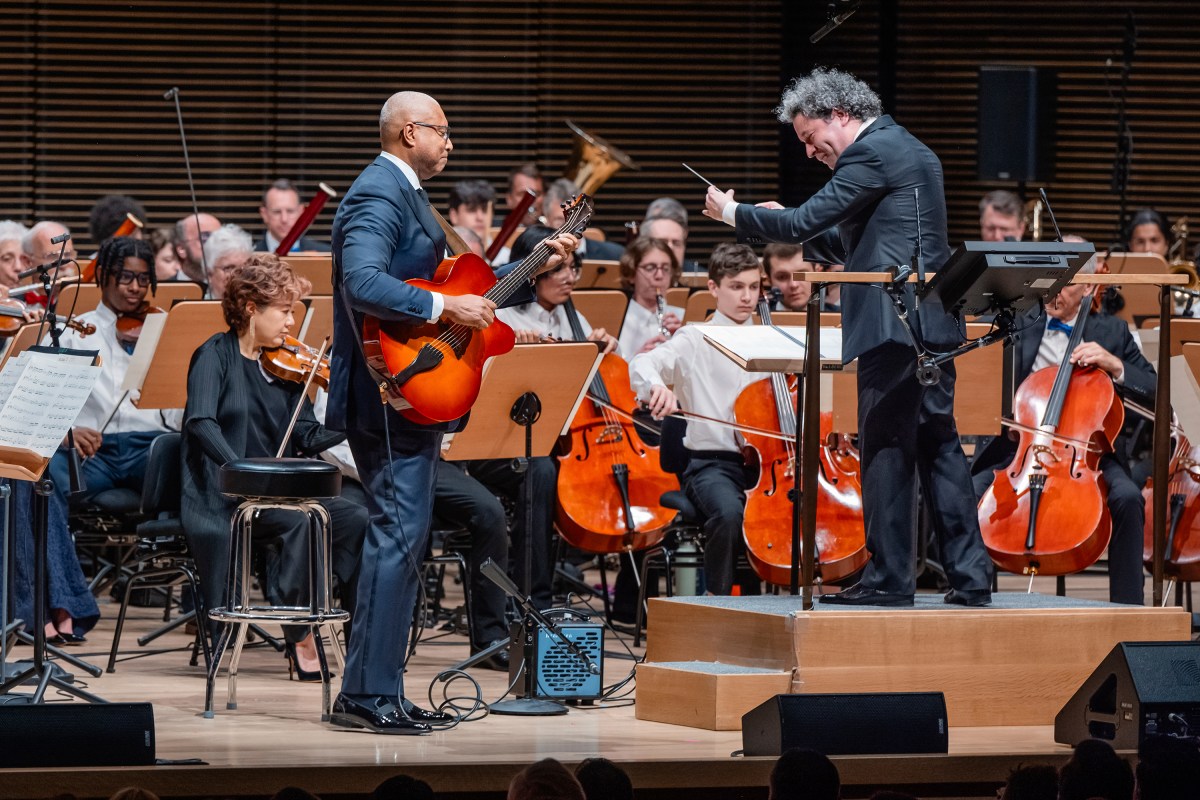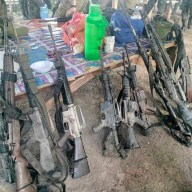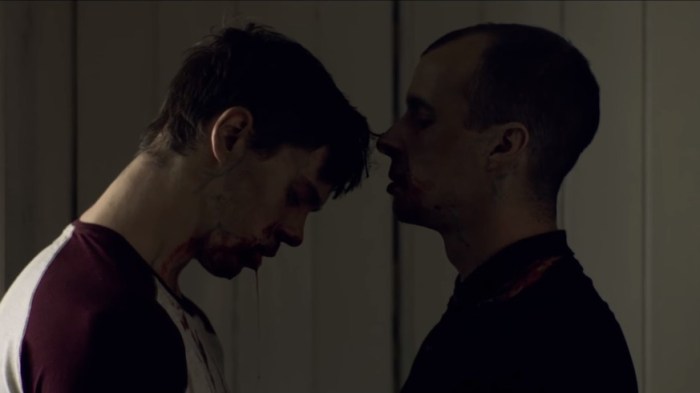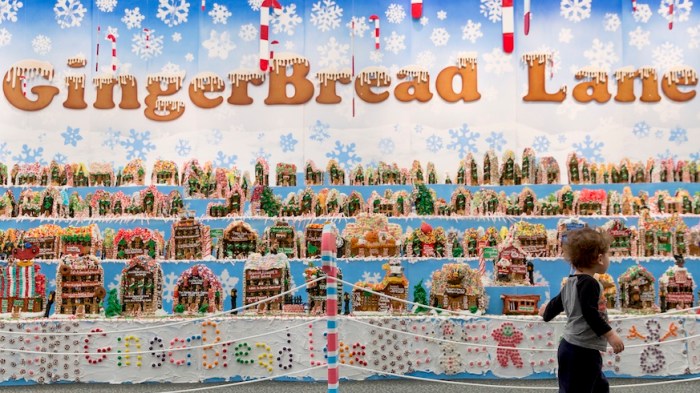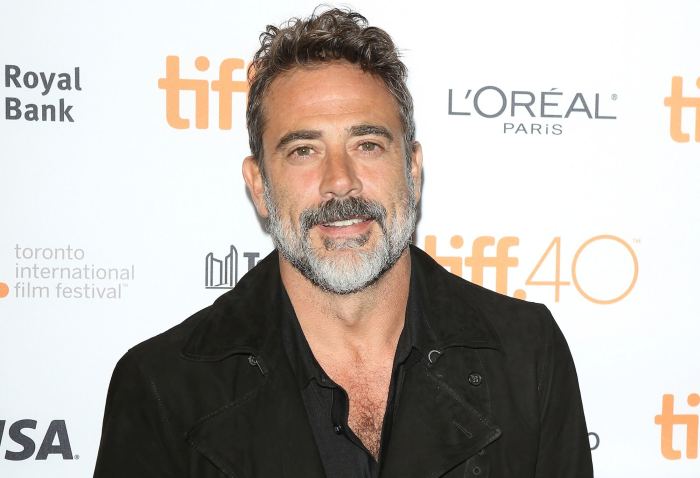Every parent wants to prepare their kids for the future, and while the zombie apocalypse may be the stuff of science fiction now, you’re always better safe than sorry. The New York Hall of Science is on the forefront of training the next generation how to survive the walking dead — with math.
How Many Zombies Is Too Many Zombies? takes the game of zombie tag and turns it into a way to teach kids ages 4 and up how to use math to avoid becoming one of the undead. Inside a rectangular field, they must avoid obstacles and wisely use a limited number of steps to stay ahead of the zombies.
Their movements are tracked and turned into a graph once the game ends, expanded to show what their strategy would look like if the same scenario had played out across the entire United States. Then, they use math to tweak their strategy before trying again — no pressure!
“We really loved this project as a way to explore math because it makes it less scary,” explains Erin Thelen, public programs manager at the New York Hall of Science. (Though if you took a survey, plenty of people would say math is scarier than zombies.) “It makes math really fun and exciting and something you want to do and easier to understand. You want to know how these graphs work and predict how to survive in the next round.”
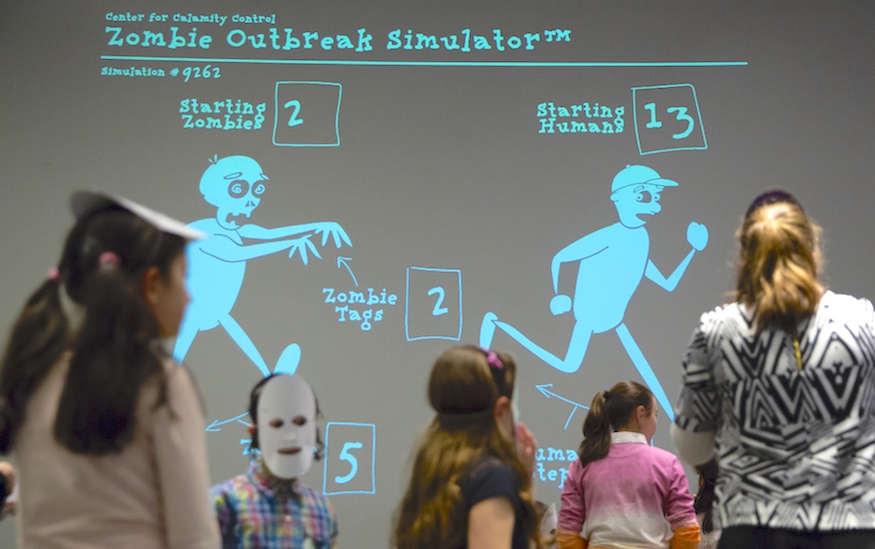
Each round takes about 20 minutes and can accommodate 25 players who have control over every aspect of the game: who’s a zombie and who’s a human, and changing variables like whether to hide behind people or go their own way, to stay alive as long as they can. They also create their own zombie masks before the game begins; after all, half the fun of being undead is looking as gross as possible.
It doesn’t have to be the end of the world for this knowledge to be useful — understanding how outbreaks spread is useful during flu season. Learning how to plan so you don’t get trapped, knowing where you’re headed and what you’ll need to do to get there are also useful well before the zombie apocalypse.
Though the game was designed for a young audience, “it’s so much fun for everyone,” says Thelen. “It’s fun for families to play together, it’s fun for kids to play, we’ve had adults playing, even our staff has played it for training.”
The game was created as part of the museum’s ongoing program called Access that pairs scientists with artists to turn complex research into kid-friendly activities. For How Many Zombies, mathematician and molecular biologist Angelika Manhart worked with the game designers at Gigantic Mechanic to adapt her biological models and high-level math like differential equations into a zombie outbreak scenario.
“The point of the game is to show you what mathematical modeling is, how it works, and how it can be used to make simulations and make predictions about complex situations,” says Thelen. “This is something that’s really physical and kids can be moving around, and that’s not what you think of when you think of math.”
How Many Zombies Is Too Many Zombies? is free to play with museum admission, with daily sessions all through January: Mon-Thurs 9:30 a.m.-1 p.m., Fri 9:30 a.m.-4:30 p.m. and Sat-Sun 11 a.m.-5:30 p.m.
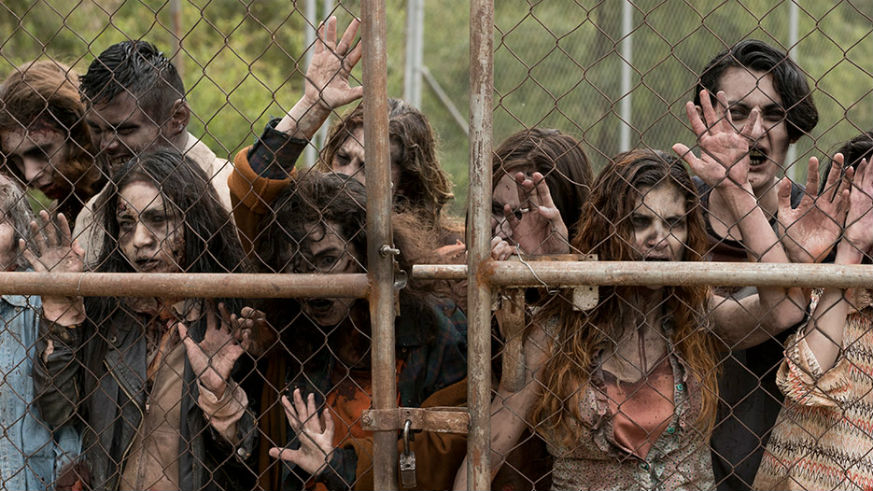
Would New York survive a zombie apocalypse?
If a disease that reanimates corpses into mindless flesh-eating zombies does ever develop, New York City doesn’t stand a chance. According to an analysis by (of all things) CareerBuilder, New Yorkers are the least likely to survive the zombie apocalypse because of the city’s population density.
And while we may never face the prospect, the New York Hall of Science isn’t the first to use it as a teaching tool. The Centers for Disease Control created a whole zombie apocalypse preparedness guide to teach people about how to survive real-world emergencies, as well as an educational tools for teachers.
Personally, Thelen doesn’t give herself very good odds: “I can’t imagine being like, ‘Oh sorry I’m out of here’ and not helping my family or friends. So yeah, I’d be a goner.”

